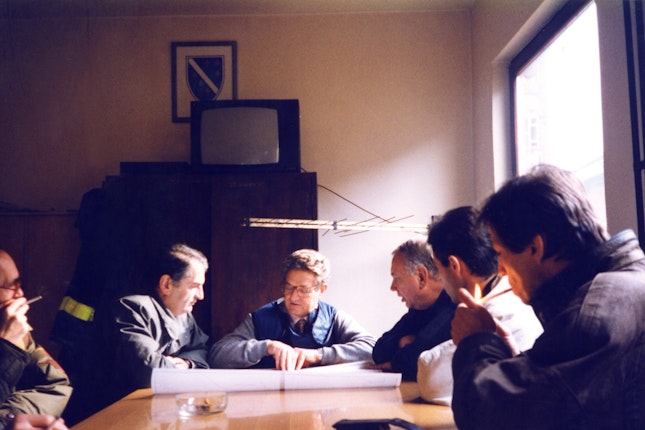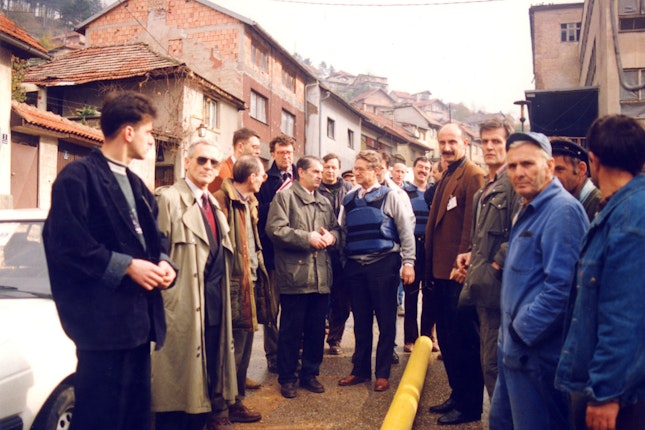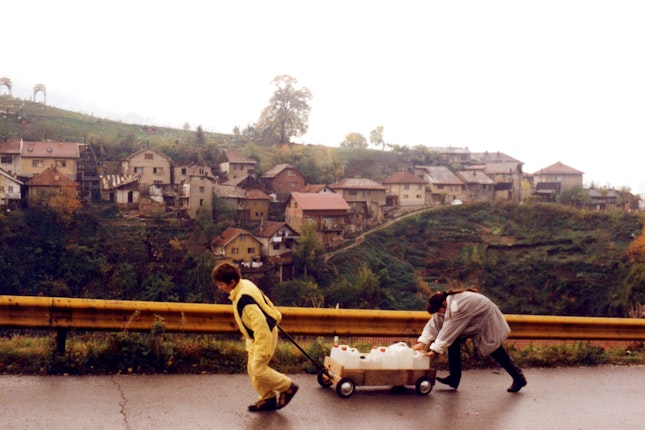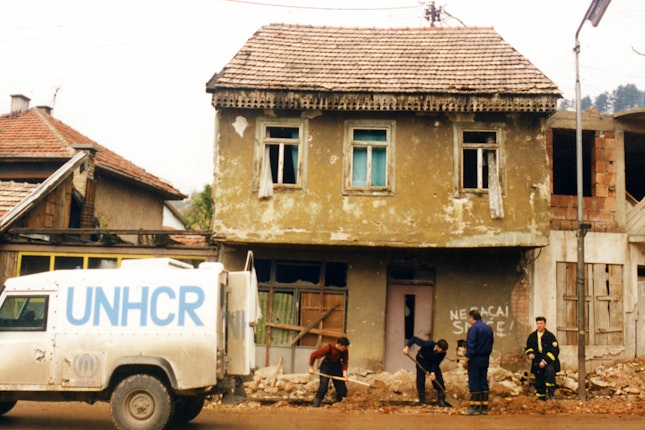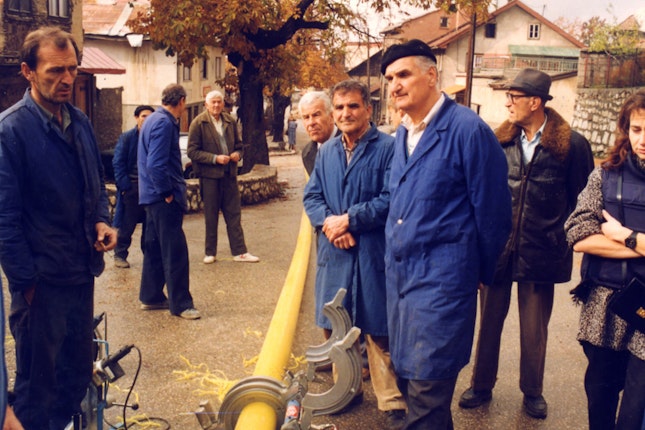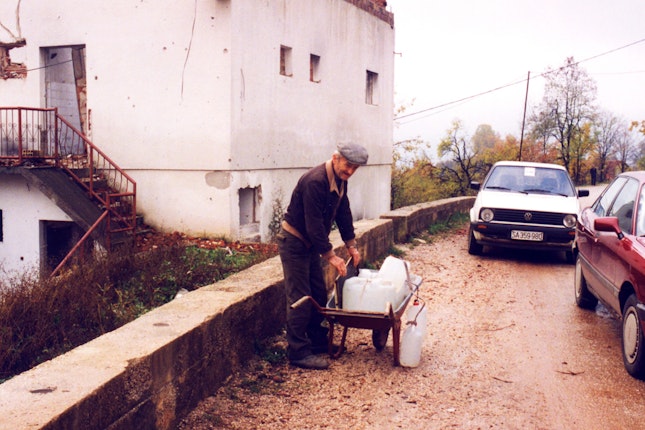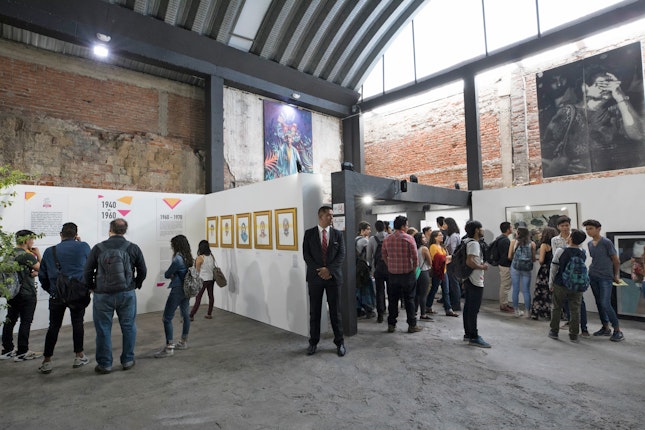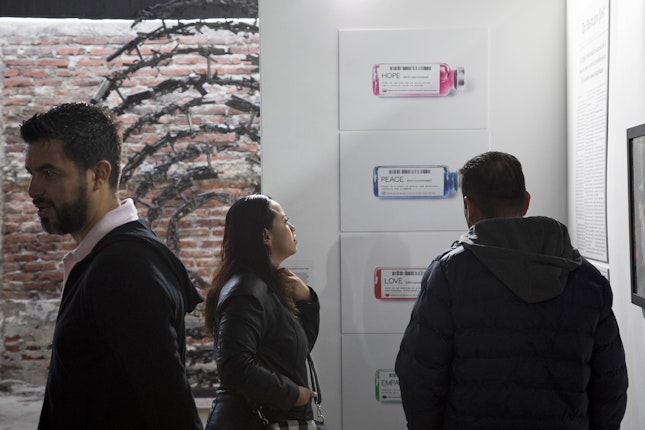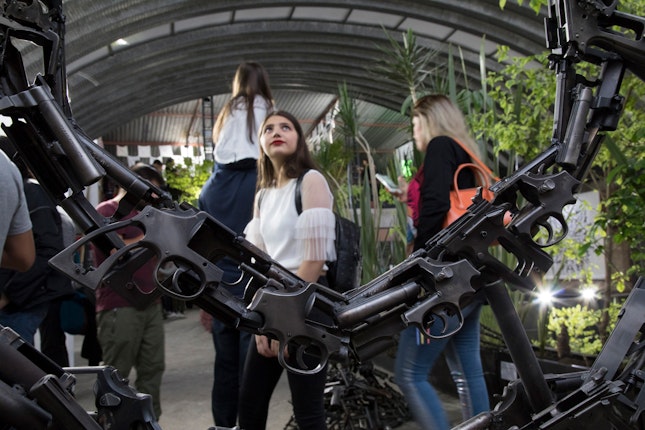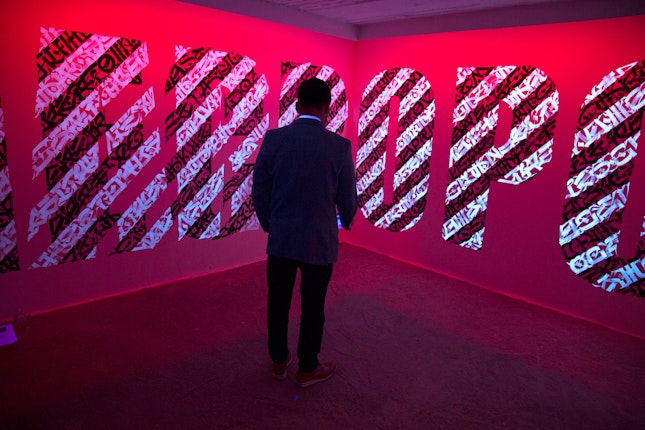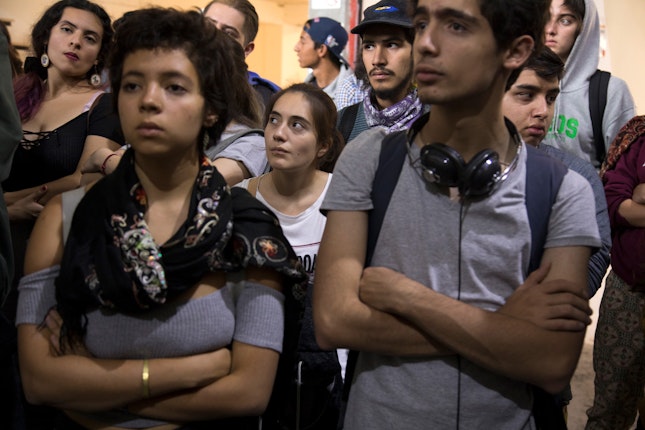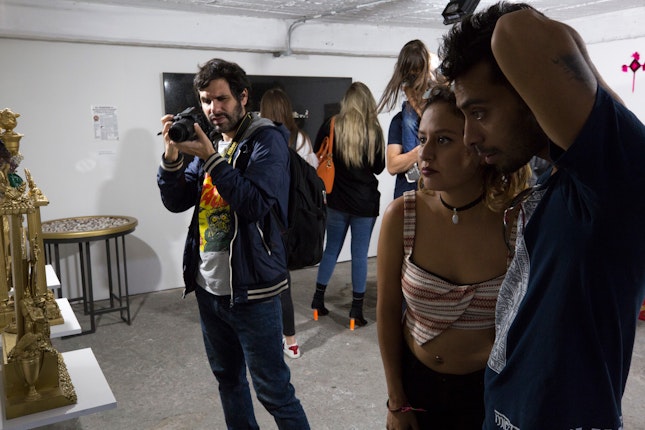Starting to Build a More Open World
George Soros, the founder and chair of the Open Society Foundations, begins his philanthropic work, funding scholarships for Black university students in South Africa during apartheid and for dissidents in communist Eastern Europe to study in the West. Today, his Foundations fund groups and individuals around the world.
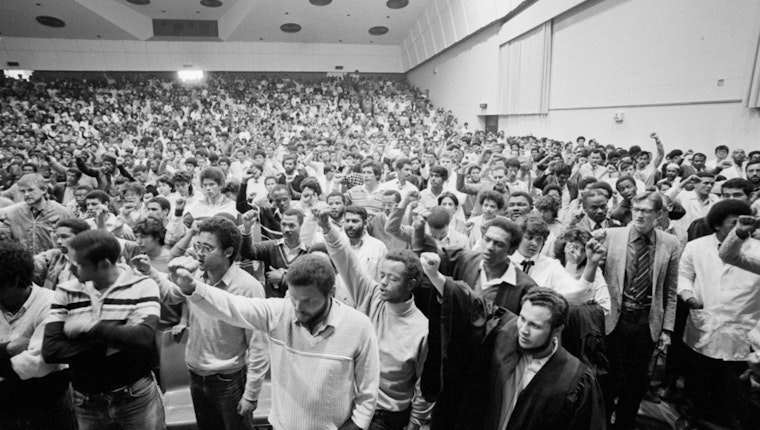
—George Soros“[South Africa] was a closed society with all the institutions of a first world country, but they were off limits to the majority of the population on racial grounds. Where could I find a better opportunity for opening up a closed society?”
Encouraging Dissent Behind the Iron Curtain
George Soros opens a foundation in Hungary, which would eventually lead to the establishment of the Open Society Foundations network. The foundations seek to expand people’s access to information in Eastern Europe and Russia—including by distributing photocopiers to independent groups to break the Communist Party’s grip on information.

Supporting Democracy in China
George Soros opens another foundation in China, which becomes a target for in-fighting between pro- and anti-reform elements in the Communist Party. The foundation closes in 1989, just before the government’s brutal crushing of dissent in Tiananmen Square.
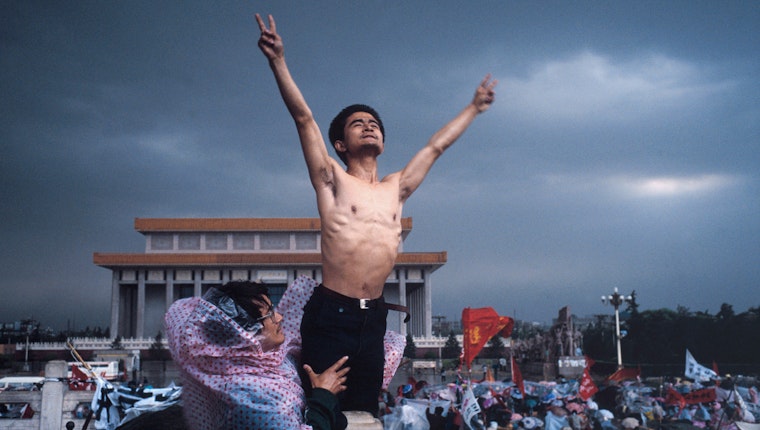
Fostering Open Societies in the Former Soviet Bloc
By the fall of the Berlin Wall, Open Society has established a presence in Poland, Ukraine and Russia. Over the next five years, the Open Society Foundations establish a network of offices in Albania, the Baltic States, Bulgaria, the Czech Republic, Kazakhstan, Kyrgyzstan, Moldova, Romania, and Slovakia.
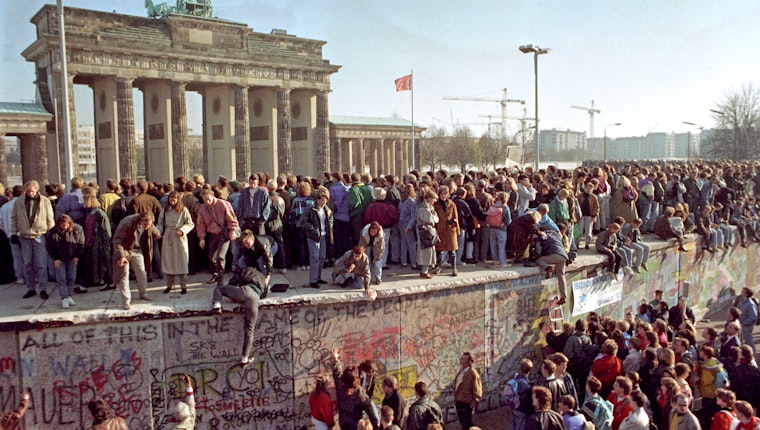
Central European University Opens Its Doors
Just over 100 students begin studies at the new Central European University, championed and largely funded by George Soros as a regional force to revitalize critical and open thinking. Now, more than 1,500 international students from all over the world attend CEU classes in Vienna and Budapest, many supported by scholarships from the Open Society Foundations.
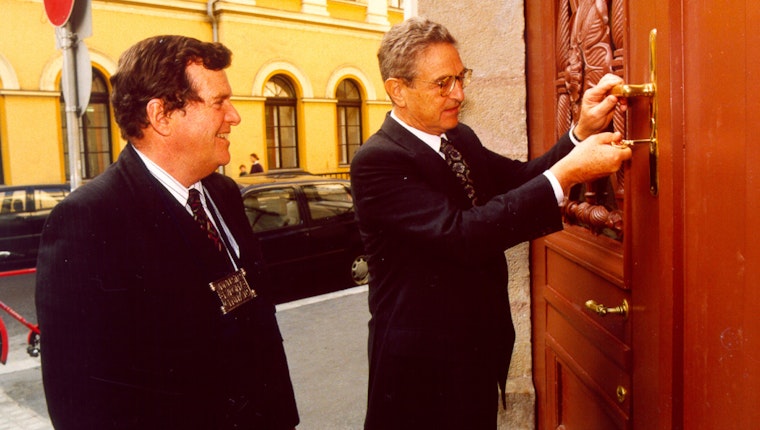
Expanding Access to the Arts
George Soros begins opening arts centers across Central and Eastern Europe and the former Soviet Union, building on a model he started in Budapest in the 1980s. A network of 20 centers, the Soros Centers for Contemporary Arts provide information on international grants, scholarships, and competitions, organize annual local contemporary art exhibitions, and support artists’ participation in exhibitions, conferences, and learning opportunities abroad.
Funding Research in the Former Soviet Union
The collapse of the Soviet Union had a devastating effect on its scientific institutions. George Soros responded to the crisis with the launch of the International Science Foundation, providing $200 million in interim emergency support for the sector. Over a two-year period, more than 30,000 scientists received individual grants, while about half of the funds went to support long-term research projects.

Taking a Lead on Early Childhood Education
Open Society Foundations launched a $100 million initiative to respond to the rapid collapse of state-run preschool systems in 15 former communist countries of Central and Eastern Europe and the Balkans. This led to the creation of the Step by Step early childhood curriculum and training program, now advanced by an independent association supported by over 80 educational groups and active in over 40 countries.

Helping Sarajevo Survive
With Sarajevo under siege, the Open Society Foundations send a team of disaster relief specialists into the city to help restore basic services. These crews, under threat of sniper fire and exploding shells, help provide residents with gas lines, drinking water, and electricity. Today, our foundation in Bosnia and Herzegovina continues to fund groups working to promote democracy, tolerance, and the rule of law in the Balkans, alongside national foundations in Serbia, Northern Macedonia, Kosovo, and Albania.
Nurturing Democracy and Addressing Inequality in Post-Apartheid South Africa
As apartheid falls, the Open Society Foundations office in South Africa focuses on addressing injustices—and creating opportunities—in a country that has systematically discriminated against the majority of its citizens for decades. The Open Society Foundations spend more than $150 million in South Africa over the next 25 years to support reconciliation, legal reform, education, public health, and independent media. George Soros makes a separate pledge in 1995 of $50 million to help the government build housing for people living in makeshift shacks and overcrowded city dwellings.
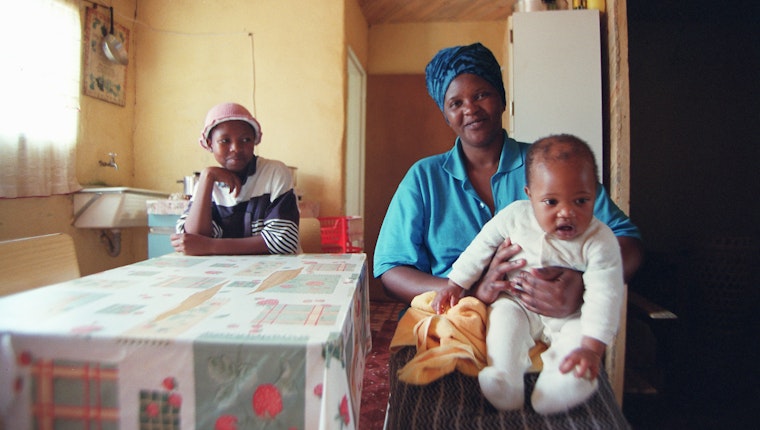
Seeking a Better Future for Myanmar
The Open Society Foundations start providing support to democracy activists, as well as Burmese refugees and dissidents in border areas. In 2016, once Myanmar formalizes a transition toward a more open government, the Open Society Foundations open a foundation to support civil society and groups representing marginalized people to encourage a representative democracy to take root.

Backing New Thinking on Global Drug Policy
Open Society launches the Lindesmith Center, a policy research institute dedicated to promoting a new approach to drug policy—one focused on health care provision and protection, rather than on punishment and prohibition. In 2000, the center becomes part of the Drug Policy Alliance, which continues today as a leading advocate for drug policy reform.
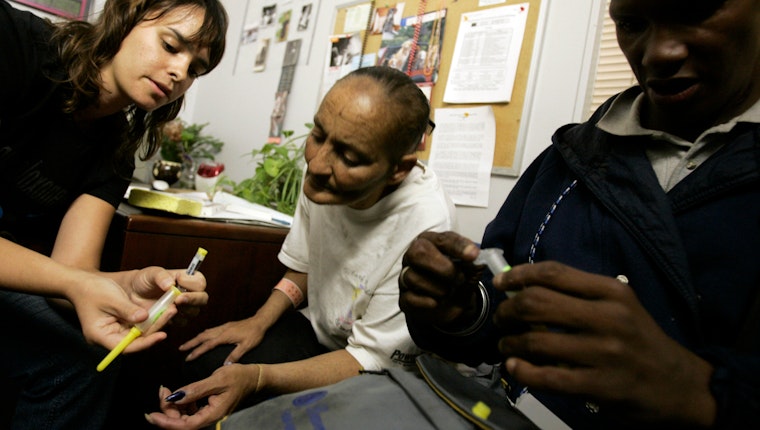
Bringing End of Life Care out of the Shadows
Motivated in part by the experience of the death of his own parents, George Soros launches the Project on Death in America. Guided by doctors, academics and caregivers, the $45 million project makes a significant and enduring contribution over a nine-year period to the improvement of end-of-life care in the United States—and shapes Open Society’s work on palliative care around the world.
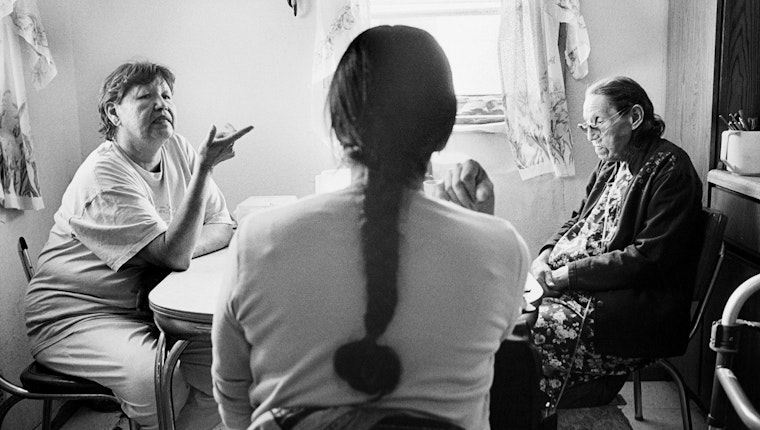
Focusing on Threats to the Open Society in the United States
Open Society expands in the United States, formally establishing a U.S. Program to guide its work. Its initial objectives include challenging a racially-discriminatory justice system and the associated mass incarceration of Black Americans; supporting reproductive rights; and advocating for humane and just immigration policies.

—George Soros“Our programs in the United States were the outgrowth of our programs in the rest of the world: social justice, vulnerable populations, civil rights, and the criminal justice system.”
In 1998, the Open Society Foundations open a field office in Baltimore to better understand and address education, justice, and addiction issues in the city and create solutions that can serve as a model for other urban areas. Today, approximately one in five dollars the Open Society Foundations spend is spent in the United States.
Standing with Europe’s Roma
The Open Society Foundations' unprecedented efforts to combat discrimination against Roma people gain momentum with the opening of the Roma Participation Project in Budapest, Hungary. We begin work to combat segregation, counter stereotypes, and create opportunities for Europe’s largest and most excluded ethnic minority.
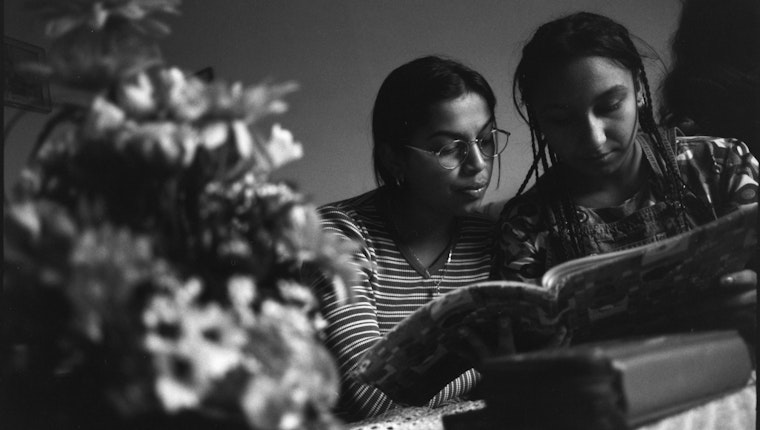
Expanding Open Society Work in Africa
The launch of the Open Society Initiative for Southern Africa marked the beginning of a decade of expansion of our work in Africa, with the creation of Open Society’s first regional foundation. Based in Johannesburg, the Southern Africa foundation today oversees work in 10 southern African countries. Similar regional foundations were subsequently set up: the Open Society Initiative for West Africa in 2000, based in Dakar, Senegal; and the Open Society Initiative for Eastern Africa in 2005, based in Nairobi, Kenya.

Mobilizing against Tuberculosis
George Soros began funding urgent work to combat the spread of new drug-resistant strains of tuberculosis in the Russian Federation, devoting an initial $12.5 million focused on the country’s overcrowded prisons, where one in four inmates suffered from the disease. Recognizing the global nature of the threat of multi-drug-resistant tuberculosis, Soros helped mobilize a response and commissioned the first studies to outline the scale of the problem. Additionally, he helped fund the launch of the first Global Plan to Stop tuberculosis in 2001, an effort backed today by some 1,700 organizations in more than 100 countries around the world.

Engagement with the European Union
The establishment of the Eurozone, with its common currency—and the prospect of adding additional states who meet certain criteria—brings the promise of a deepening commitment to advancing human rights, liberalizing economic policies, and increasing government accountability. The Open Society Foundations support many efforts, including the creation of the European Council on Foreign Relations in 2006, to leverage this foundational promise into EU policies and practices that respect open society values inside and outside its borders.
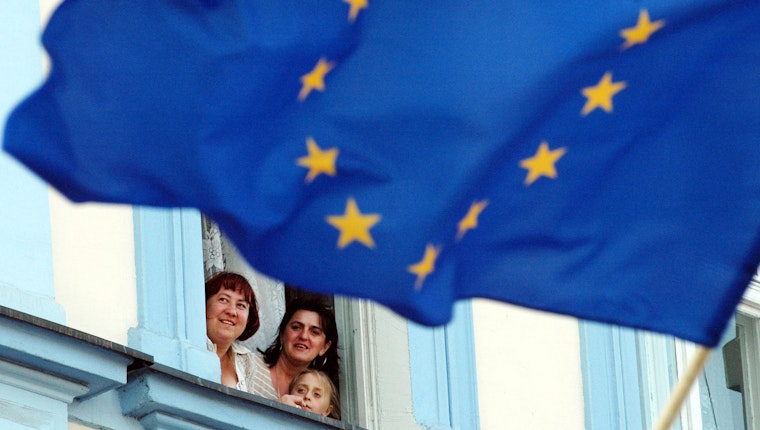
Countering Discrimination toward Muslims
The response to the attacks in the United States on September 11, 2001, and subsequent terror events in Europe, catalyze a new wave of hostility and violence toward Muslims in the United States and Europe. The Open Society Foundations respond by investing in legal efforts to protect Muslims’ rights, and fund new research and reporting on discrimination directed toward Muslim people in education, employment, and other areas of society.

Supporting Democracy in Indonesia
The Open Society Foundations join Indonesian civil society groups and establish the Tifa Foundation. The new grant-making organization, based in Indonesia, is dedicated to addressing corruption, monitoring elections, and expanding legal access to all. In 2020, the Tifa Foundation became an independent entity and a grantee.
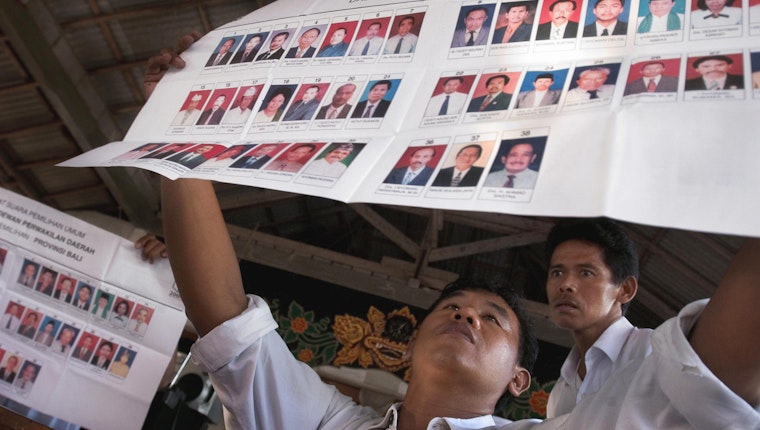
Promoting Justice and Peace in Israel-Palestine
The Open Society Foundations gave its first grants to groups in Israel and Palestine, as George Soros expanded his philanthropic efforts into the Middle East region.

Prosecuting the Most Heinous Crimes
The International Criminal Court (ICC), long supported by the Open Society Foundations, becomes the first permanent institution responsible for prosecuting genocide, crimes against humanity, and war crimes. Building on our work with war crimes in tribunals for Cambodia, Rwanda, Sierra Leone and Yugoslavia, we continue to encourage a debate to understand the possibilities for, and the limits of, international justice, including through funding regular monitoring of court proceedings through the International Justice Monitor.

Building a Brighter Future in Pakistan
The Open Society Foundations begin work in Pakistan, providing $3 million in relief funding following that year’s earthquake, and additional emergency support after floods in 2007 and 2012. Overall, we have disbursed more than $45 million, demonstrating a commitment to families across Pakistan by launching innovative education initiatives, establishing a coalition for media safety, and training community-based paralegal advisors. With a new operating agreement signed with the government in 2020, the Open Society Foundations will focus on empowering poor communities whose economies have been damaged by the COVID-19 pandemic, and integrating these efforts into longer-term engagements in the areas of justice and rule of law, health, economic justice, and the arts.
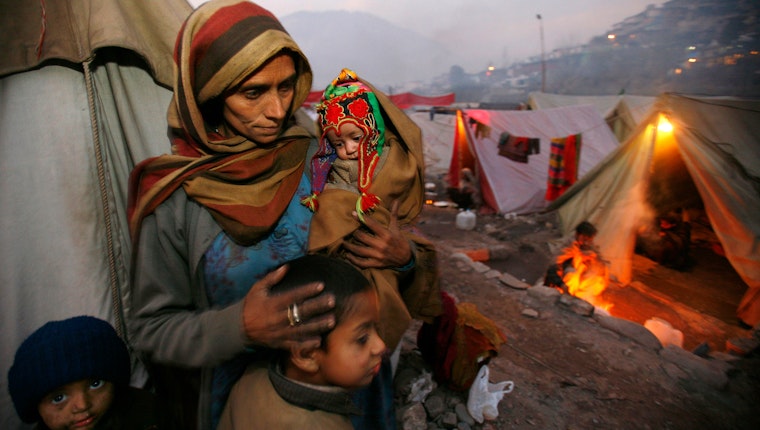
Helping People Living with HIV and TB in Africa
In Lesotho, a small southern African country, at least 25 percent of the people are HIV positive, and TB has infected about 90 percent of them, lowering life expectancy to 35 years. The Open Society Foundations award a $3 million grant to Partners in Health to develop new approaches to more effectively treat people infected with multi-drug resistant TB. The new approaches are shared broadly, helping to address a growing danger worldwide for people who are HIV positive.

More than a Decade of Breakthroughs on Disability Rights
The Open Society Foundations' disability rights portfolio begins with a single $100,000 grant. This commitment begins work focused on using a rights-based framework to advocate for the rights of people with disabilities. From 2007 to 2018, the Open Society Foundations invest more than $10 million to safeguard the rights of people with disabilities.

Accountability in Afghanistan
The Open Society Foundations invest in efforts to make progress on a range of issues in Afghanistan, including establishing an independent bar association, reporting on wrongful and inhumane detention operations, and exposing the consequences of war on civilians.
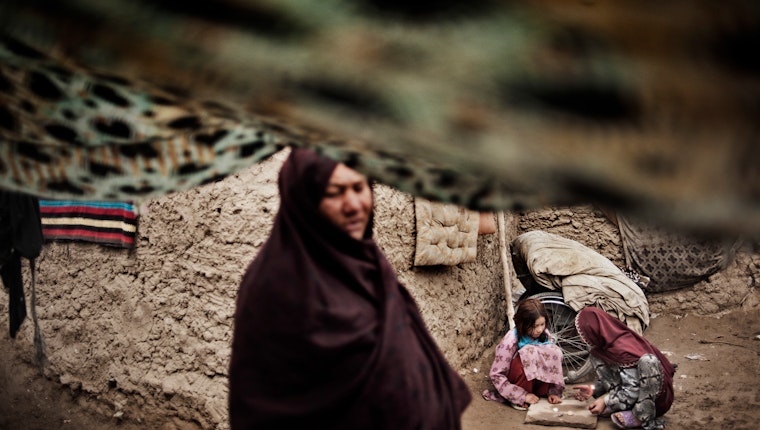
Supporting Development in Post-Conflict Sierra Leone and Liberia
BRAC, an anti-poverty organization, receives $15 million from the Open Society Foundations and other funders to rebuild war-torn Sierra Leone and Liberia.

Helping Haiti Recover from a Devastating Earthquake
In the immediate aftermath of the quake, the Open Society Foundations donate $5 million to organizations doing life-saving work in Haiti. Later, we partner with the WIN Group, a Haiti-based business, to develop a $45 million industrial park that has the potential to create 25,000 jobs. Since 1995, the Open Society Foundations have spent more than $50 million on education and economic revitalization projects in Port-au-Prince.
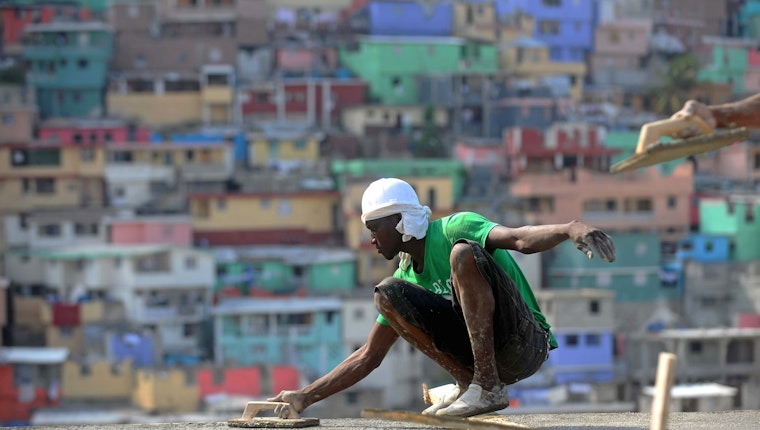
Holding Soldiers Accountable for Rape in the Democratic Republic of Congo
In response to the rape of thousands of women and children by soldiers during conflicts in the Democratic Republic of the Congo, we support a mobile court for gender crimes that travels to remote, war-torn regions bringing justice to women. In a major victory in early 2011, a mobile court finds a colonel, three junior officers, and five soldiers guilty and gives them sentences ranging from 10 to 20 years.
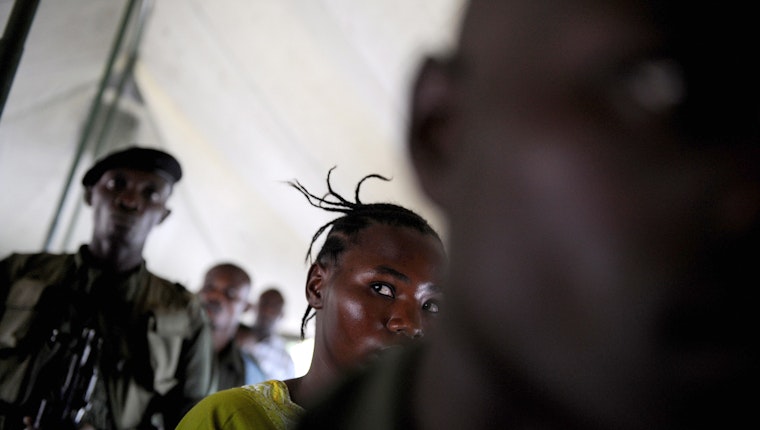
Expanding Work in Latin America
Our engagement in Latin America deepens, with the opening of our Rio de Janeiro office under a new regional director, followed by two more locations in Mexico City and Bogota.

Supporting Justice for One of Central America’s Most Murderous Generals
General Efraín Ríos Montt, Guatemala’s former military dictator, stands trial for genocide and war crimes over systematic attacks on Maya indigenous communities during the early 1980s, at the height of Guatemala’s civil conflict. Following death threats against prosecutors and others in Guatemala, the Open Society Justice Initiative launches an English-language trial monitoring website to focus international attention on the process. Montt’s conviction marked the first time a domestic court anywhere had found a former head of state guilty of genocide, but it was overturned on a technicality ten days later on procedural grounds. A second prosecution ended with Montt’s death in 2018.
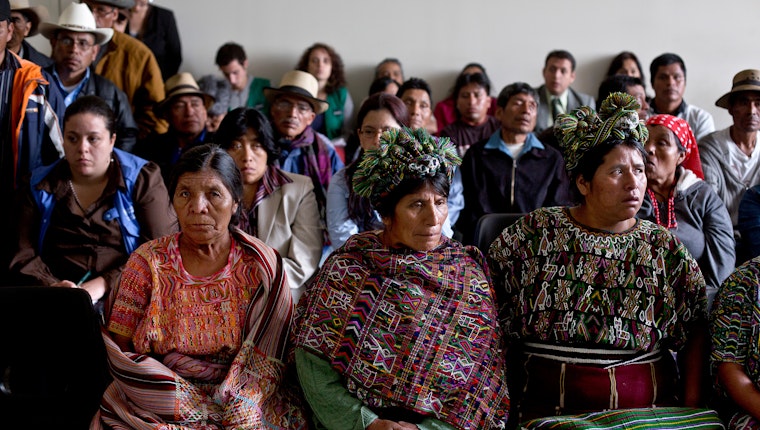
Creating Space for Civil Society After the Arab Uprisings
We open an office in Tunisia to support its emergence from over 50 years of authoritarian rule, following the 2011 revolt that inspired the Arab Spring.
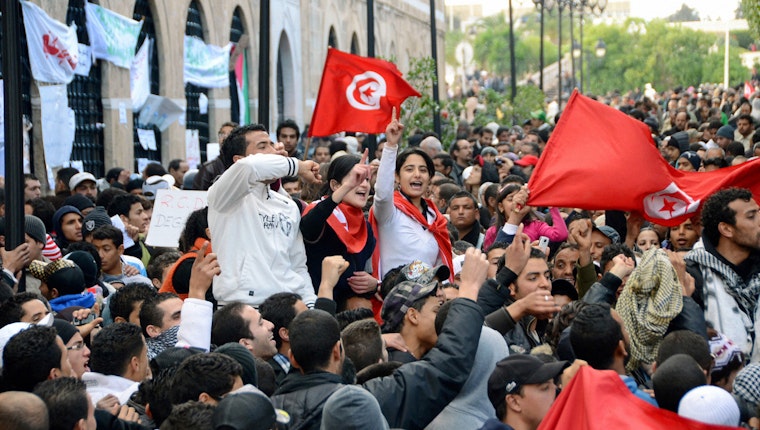
Confronting a Legacy of CIA Torture
In response to legal work by the Open Society Justice Initiative, the European Court of Human Rights became the first court to publicly confirm the existence of the so-called “black site” secret prisons operated by the CIA in Europe after the September 11, 2001 attacks on the United States. The ruling focuses on the role of Poland; a similar ruling against Romania follows in 2018.

Helping Refugees and Migrants Fleeing War and Poverty
In 2015, as a result of ongoing conflict and instability in Syria, Iraq, and Afghanistan, hundreds of thousands of men, women, and children sought safety in Europe. National governments and local communities were overwhelmed. To assist, the Open Society Foundations increased our support for groups in Europe that work to ensure newly arrived migrants and refugees are safe and supported throughout the integration process.
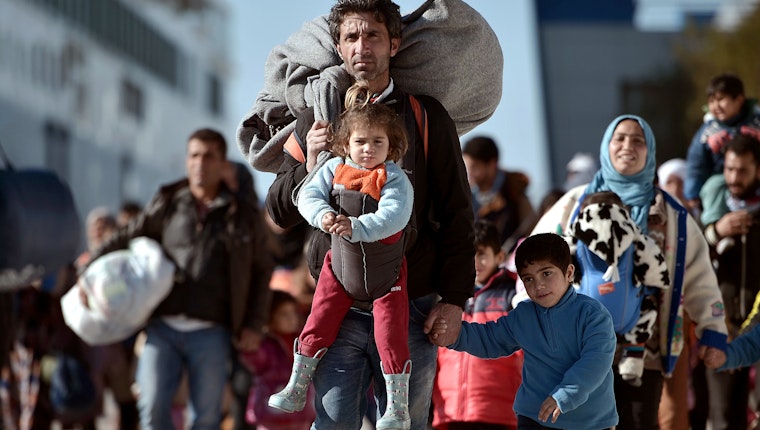
Advocating for the Rohingya
George Soros expresses his outrage over the authorities’ treatment of the Rohingya minority in Myanmar, saying a visit to a Rohingya settlement reminded him of the ghetto in Budapest where Jews were held during World War II. Later, he establishes a $10 million emergency fund to help Rohingya in Myanmar and the communities that host refugees in neighboring Bangladesh.
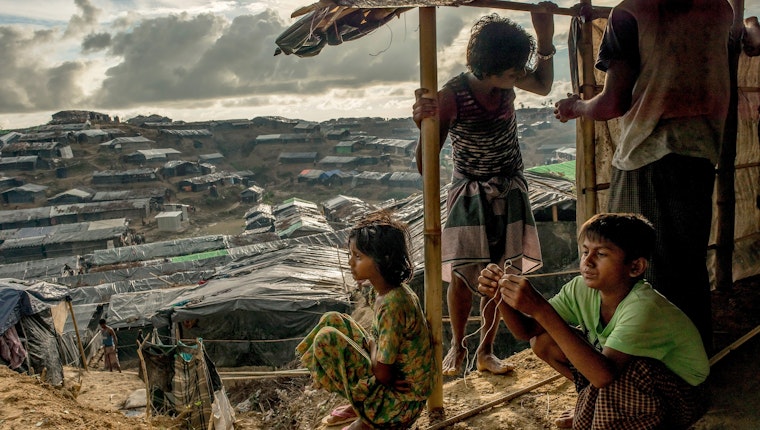
Celebrating Marriage Equality in the United States
The Open Society Foundations help organizations win the 2015 Supreme Court case that makes marriage equality legal in all 50 states. The decision is one of the most significant political victories in modern American history. It also reinforces our dedication to support dozens of organizations around the world that are fighting for LGBTI rights.
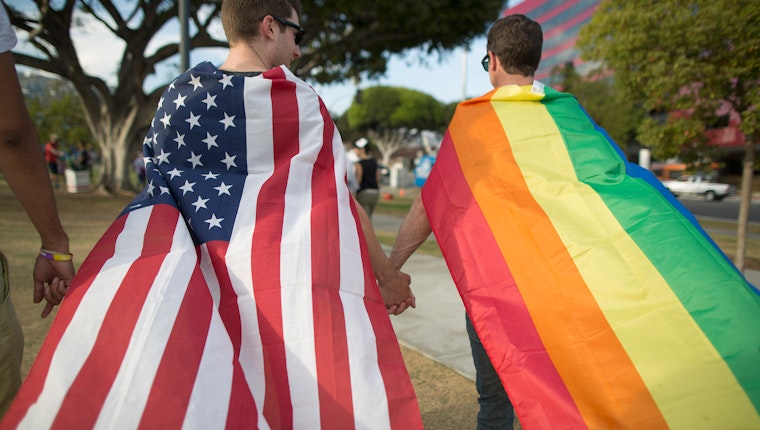
Investing in Economic Power for Social Justice
The Open Society Foundations takes direct responsibility for managing the Soros Economic Development Fund (SEDF). The fund, founded by George Soros in 1997, invests in high-risk business initiatives that will have a positive social impact. SEDF’s investment portfolio expands significantly over the coming years, to over $220 million currently.
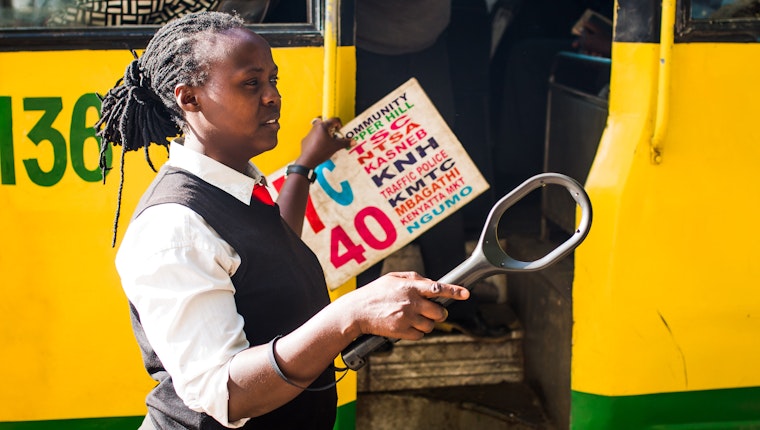
Helping Puerto Rico Rebuild after Hurricane Maria
The Open Society Foundations invest more than $20 million to help disaster-affected communities rebuild. We also join philanthropic, business, government, and NGO’s in developing a blueprint for a long-term, resilient, and equitable recovery.
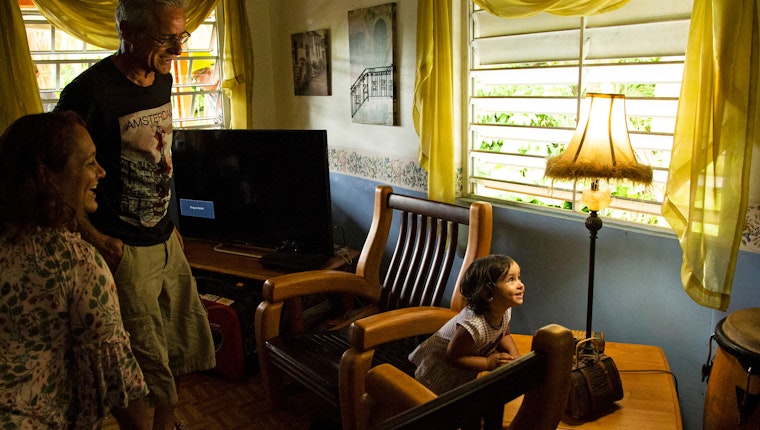
Reducing Harm from Drug Use
With Open Society support, a bill to decriminalize possession of drugs for personal use is introduced with widespread political backing in Ghana. The bill also reduces criminal sentences for drug-related charges. It is the first of its kind in Africa, serving as a blueprint for other countries who seek to move away from punitive drug policy approaches and towards drug policies informed by public health data.
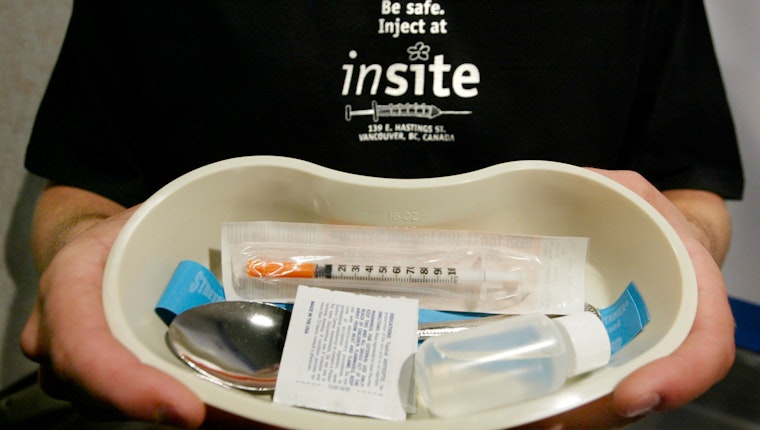
Shining a Light on Roma Artists
The Open Society Foundations supports the opening of the European Roma Institute for Arts and Culture in Berlin, the first transnational organization dedicated to promoting Roma culture, arts, and rights.
—George Soros, speaking at the opening of the European Roma Institute for Arts and Culture in Berlin“Negative stereotypes about the Roma are dangerous not only for the Roma, but for all of us. The right wing political parties that stand against the Roma are the same ones that stand against open society.”
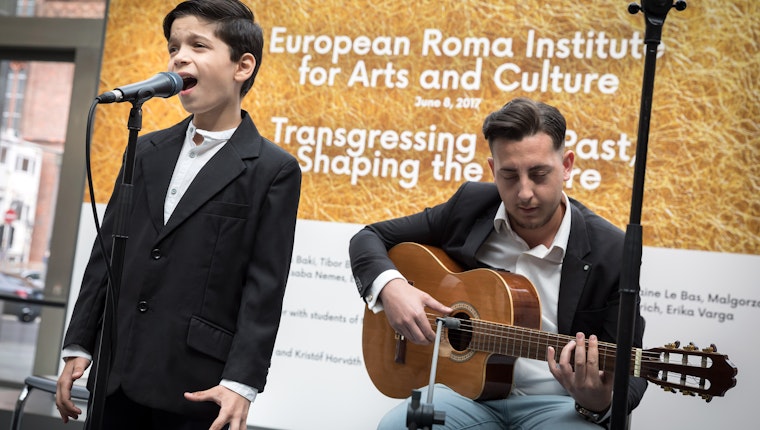
Expanding the Drug Policy Debate through Art
Hundreds of people in Mexico City visit the Museum of Drug Policy—a three-day public event backed by Open Society Foundations that features local and international artists’ responses to the global “war on drugs,” combined with discussions and debate. Previous events staged in London, Montreal, and New York.
Moving to Berlin
The Open Society Foundations moves its Budapest-based international operations and staff to the German capital, Berlin, in response to an increasingly repressive political and legal environment in Hungary. Open Society continues to support civil society groups in Hungary, working on issues such as arts and culture, media freedom, transparency, and education and health care for all Hungarians.

Art as an Engine for Social Change
The launch of the Culture and Art program reinforces Open Society’s long and ongoing creative engagement with those working at the intersection of art and social change.
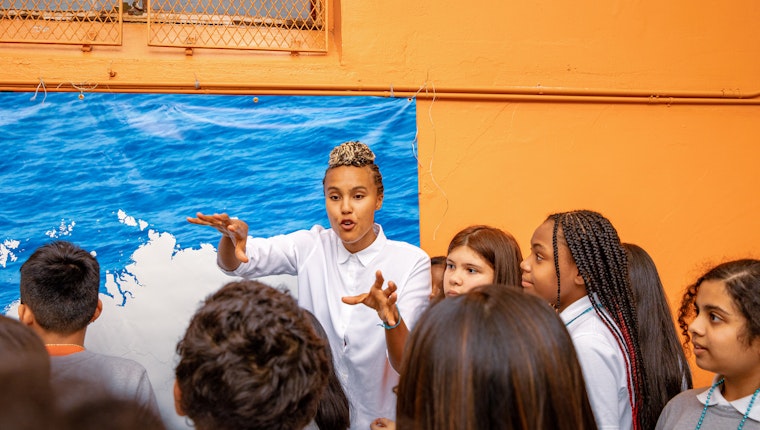
Investing in Racial Justice
Open Society announces a $15 million grant to the NAACP Legal Defense and Education Fund, the leading legal organization fighting for racial justice in the United States, as the group marks the 80th anniversary of its founding.
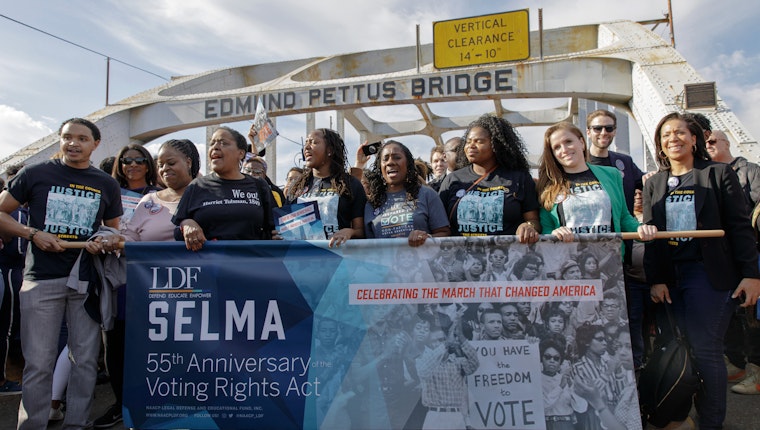
A Rapid Response to the Global Pandemic
Open Society responds to the devastating COVID-19 pandemic with emergency grants of over $200 million, including some $50 million in relief payments for people in cities the United States who were excluded from federal support.
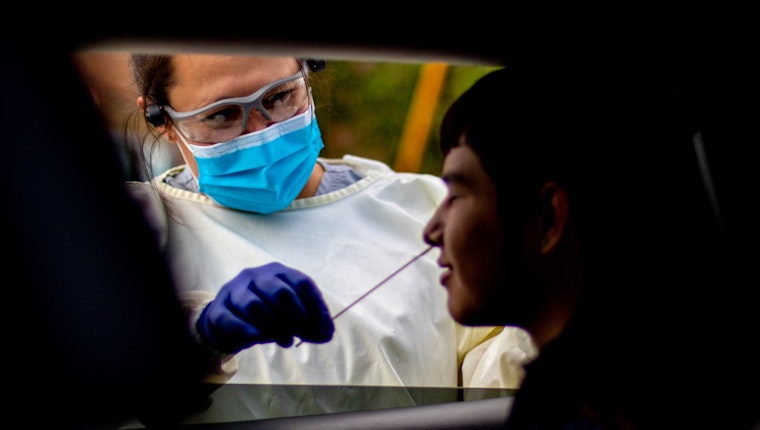
Building Black Power
Open Society announces investments of $220 million to build power in Black communities, promote bold new anti-racist policies in U.S. cities, and help first-time activists stay engaged.
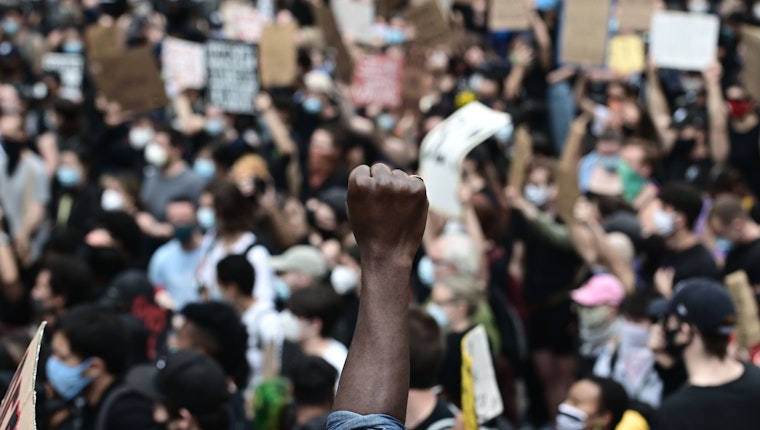
Urgent Humanitarian Relief for Afghanistan
In response to the Taliban takeover, Open Society Foundations announces $10 million in emergency funding to support Afghan civilians in peril and deliver humanitarian relief to Afghan refugees who have fled to neighboring countries.
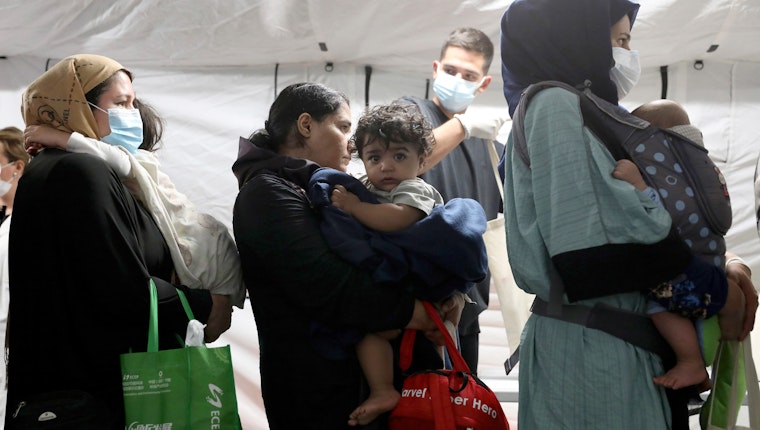
Supporting a Free and Democratic Ukraine
The Open Society Foundations pledges an initial $25 million to bolster civil society amid the Russian invasion of Ukraine, including support for groups assisting displaced civilians and activists documenting war crimes.

Empowering Europe’s Roma
After more than three decades as the leading private funder and advocate for Europe’s Roma communities, Open Society pledges €100M to support the launch of a new, independent foundation for Europe. The Brussels-based organization is the first of its scale and scope to be managed by Roma leaders.
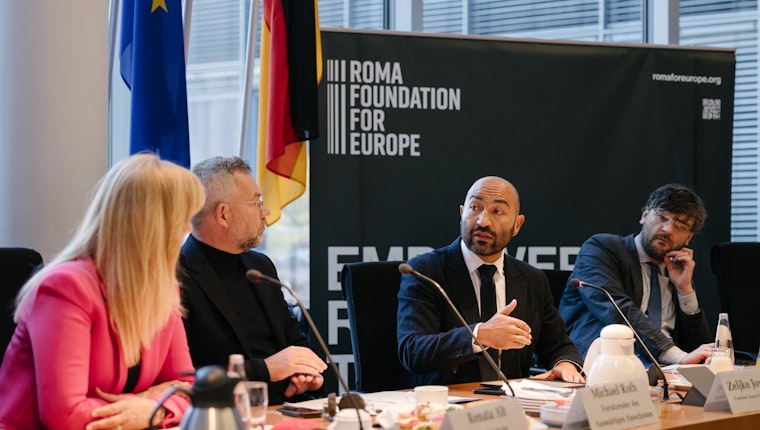
Creating Space for Free Thought
The Open Society Foundations launches The Ideas Letter, an online magazine that seeks to reinforce free debate on current issues with contributions from across ideological and intellectual divides.

